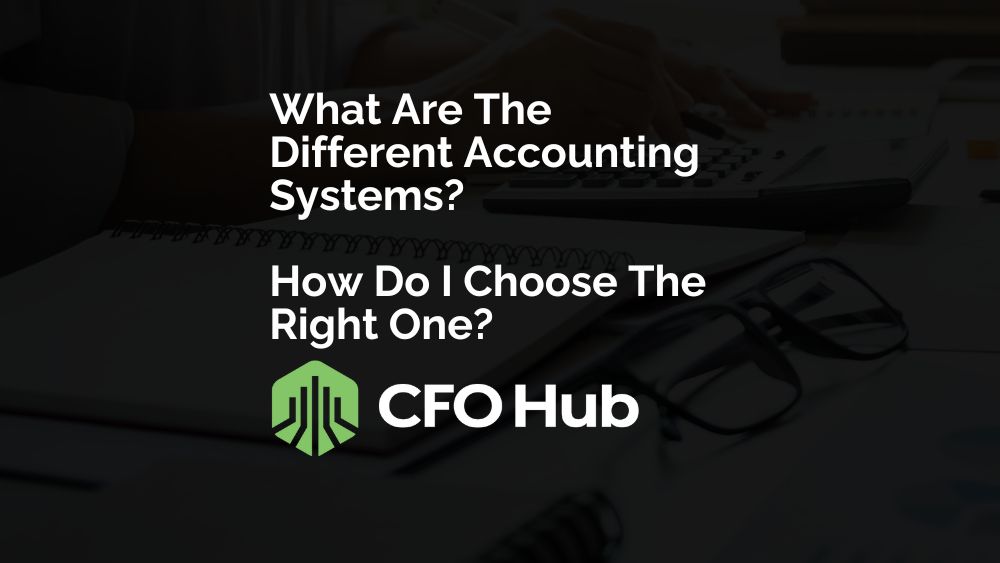Choosing the appropriate accounting system is critical for maintaining clear financial records, complying with regulations, and providing accurate data for decision-making. Different accounting systems cater to varying business needs, sizes, and industries. Selecting the right system depends heavily on your business structure, volume of transactions, budget, and growth ambitions.
Understanding the Different Types of Accounting Systems
Several primary accounting systems exist, each with unique strengths and applications:
- Manual Accounting System: Often used by very small businesses, manual accounting involves physically recording financial transactions in books or ledgers. While inexpensive and straightforward, it can lead to errors, lacks automation, and is not practical for larger operations.
- Single-Entry Accounting System: Similar to a checkbook, this system records transactions in a single column. It is suitable for freelancers, sole proprietors, and small enterprises with limited, straightforward transactions. However, it doesn’t track assets and liabilities effectively, which could complicate financial reporting.
- Double-Entry Accounting System: This system records each transaction in two accounts—as debit and credit—to maintain balance. Most businesses use this method as it accurately tracks financial transactions, assets, liabilities, and equity, providing detailed and reliable financial statements.
- Computerized Accounting Systems: These include software solutions like QuickBooks, Xero, Sage, and FreshBooks. They automate calculations, generate real-time reports, and reduce human error. These systems are scalable, making them ideal for businesses expecting growth or managing complex transactions.
- Cloud-Based Accounting Systems: Accessible through the internet, these solutions store data on secure remote servers. They offer flexibility, remote access, automated backups, and real-time collaboration, making them particularly beneficial for businesses with remote employees or multiple locations.
- ERP (Enterprise Resource Planning) Systems: ERP integrates accounting with other business operations like inventory management, procurement, and human resources. Suitable for larger businesses or those with complex needs, ERP solutions streamline various business functions, providing comprehensive data management and analysis.
Factors to Consider When Choosing an Accounting System
Selecting an accounting system requires careful evaluation of your business needs and future growth plans. Consider the following factors to make the best decision:
- Size and Complexity of Your Business: Small businesses or sole proprietors may manage well with simple single-entry or manual systems. Larger businesses or those with inventory, multiple revenue streams, or complex regulatory requirements typically benefit from double-entry or computerized systems.
- Industry Requirements: Certain industries have specialized accounting requirements—for instance, retail businesses need robust inventory tracking, while nonprofits have specific reporting needs. Choose an accounting system that caters directly to your industry standards.
- Budget Constraints: Determine your available budget and consider the cost-benefit ratio. While manual systems are inexpensive upfront, they require significant time and effort. Cloud or computerized accounting software involves subscription or licensing fees but may save substantial resources over time.
- Ease of Use: Evaluate how user-friendly the software is. Complex accounting software might require extensive training or hiring additional personnel. A user-friendly interface reduces training time and allows your existing team to adopt it quickly.
- Integration Capabilities: Businesses often use multiple software systems (like payment processing or payroll). An accounting system that integrates smoothly with other tools saves significant manual labor and reduces error potential.
- Accessibility and Mobility: Cloud-based accounting systems allow remote access, real-time updates, and collaboration among geographically dispersed teams. If mobility and flexibility matter to your business, cloud solutions are advantageous.
- Security and Data Backup: Protecting sensitive financial information is paramount. Evaluate the security features offered by software providers, including data encryption, automatic backups, and compliance with privacy standards.
- Scalability: Your business is likely to evolve. Ensure the accounting system you select can accommodate future growth or increased complexity, avoiding the need for frequent system migrations.
Final Recommendations
Choosing the correct accounting system sets the foundation for effective financial management. Smaller, straightforward operations may start with simpler solutions like manual or single-entry methods but should anticipate shifting to more robust systems as their needs grow. Medium and larger enterprises typically benefit from computerized or cloud-based solutions due to scalability, security, integration, and accuracy.
Take your time to thoroughly evaluate your business requirements, budget, and future goals. Seek professional guidance from accounting experts if needed. By carefully selecting an appropriate accounting system, you ensure accurate financial reporting,compliance, and enhanced decision-making capability, contributing significantly to your overall business success.
Jack Perkins, CPA founded CFO Hub to provide strategic finance and accounting services to enterprises of all sizes. Prior to founding CFO Hub, Jack served as the CFO and Controller of rapidly growing enterprises in California. Jack's written content has been featured in Forbes, Entrepreneur, and several other notable publications.
Visit Jack's Expert Hub to learn more about his experience and read more of his editorial content

